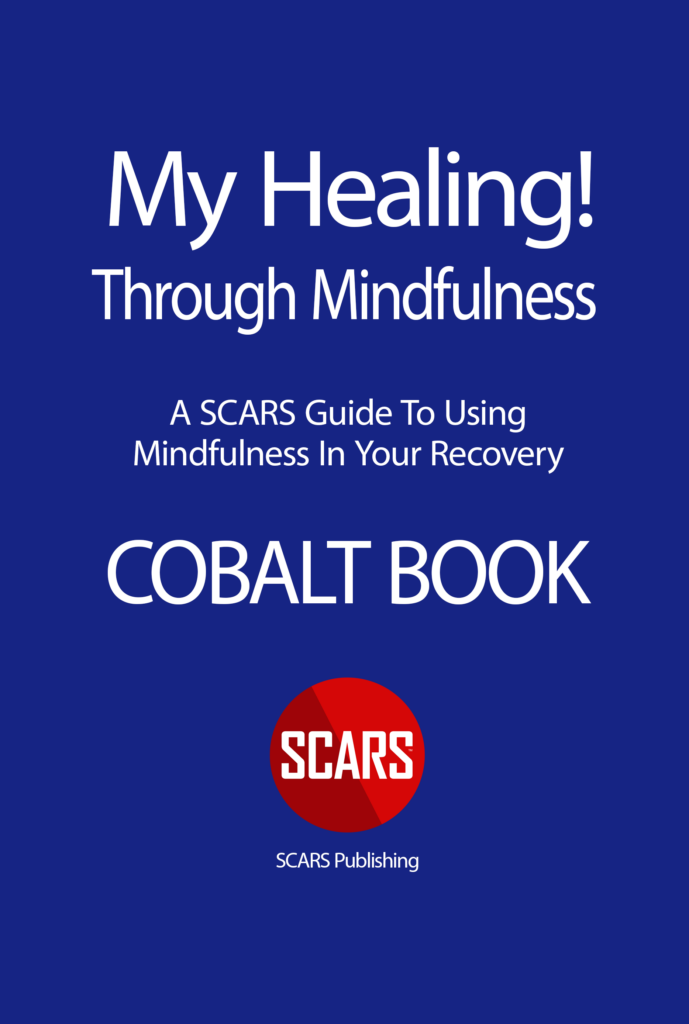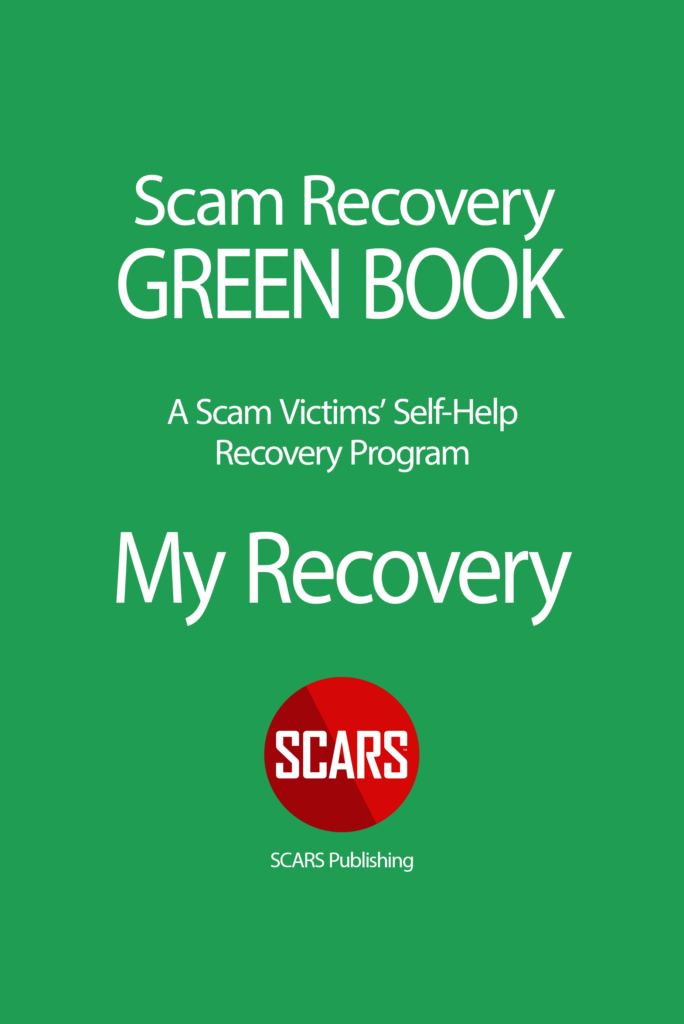Anxiety And Mindfulness – A Tool For Scam Victims
Helping Scam Victims/Survivors to Understand Mindfulness Techniques to Aid in their Recovery
Author:
• Tim McGuinness, Ph.D. – Anthropologist, Scientist, Director of the Society of Citizens Against Relationship Scams Inc.
• Based on the work of Dr. Ron Siegel and others
About This Article
In the aftermath of falling victim to scams, fear and anxiety often haunt scam survivors, hindering their peace of mind and emotional well-being. However, Mindfulness serves as a potent tool for scam victims, offering solace and empowerment amidst adversity.
Trauma expert Dr. Ron Siegel emphasizes that mindfulness practices provide a simple yet profound antidote to anxiety, guiding individuals to embrace the present moment and cultivate resilience. By grounding themselves in present-moment awareness, scam victims can confront fear and anxiety with compassion and equanimity, reclaiming agency over their emotional landscape.
Through mindfulness, individuals learn to navigate grief, loss, and trauma with grace and self-compassion, fostering resilience and post-traumatic growth. By embracing the transformative power of mindfulness, scam survivors pave the way toward healing and renewal, embarking on a journey of self-discovery and empowerment.
Mindfulness serves as a guiding light, illuminating the path to inner peace, resilience, and wholeness for scam victims on their road to recovery.

Mastering Fear & Anxiety: A Mindfulness Approach to Lower Anxiety for Scam Victims in Recovery
During the aftermath of a scam, fear and anxiety often lurk in the minds of scam victims, waiting to ambush our peace of mind but mindfulness offers a solution.
For some, these emotions of anxiety and fear become more than just fleeting discomforts; they evolve into formidable barriers, trapping individuals in a cycle of distress. But amidst the chaos, there exists a beacon of hope – mindfulness.
According to trauma expert Ron Siegel, PsyD, mindfulness practices offer a simple yet potent antidote to the grip of anxiety.
At the heart of this approach, based on Dr. Siegel’s work, lies a fundamental truth: much of our anxiety stems from our fixation on the future. Like restless wanderers, our minds incessantly traverse the landscape of what-ifs, oscillating between anticipation and dread.
As Mark Twain poignantly observed, we are often haunted by specters of misfortune that exist solely in the corridors of our imagination.
Mindfulness
Mindfulness, with its unwavering focus on the present moment, acts as a beacon of light amidst the darkness of anxiety. By gently guiding our attention to the here and now, it illuminates the path to inner tranquility. In the sanctuary of the present, where dangers are scarce, anxiety finds little room to thrive.
But mindfulness offers more than just refuge from the storm; it bestows upon us the power to weather its fury. In a world where discomfort is synonymous with danger, our instinctual response is to flee from anxiety’s grasp. Yet, paradoxically, it is this very aversion that fuels the flames of our affliction.
The wisdom of ancient teachings echoes through the corridors of time, offering solace to the weary soul. The Buddha’s timeless words remind us that in the face of fear, our salvation lies not in evasion but in endurance. By embracing our anxiety with open arms, we cultivate the resilience to withstand its onslaught.
Overcoming Anxiety
How can we integrate mindfulness into our lives to befriend fear and anxiety?
The answer lies in a simple yet profound practice:
- Begin by grounding yourself in the present moment, focusing your awareness on the breath or another anchor of attention. Allow your breath to serve as a lifeline, tethering you to the here and now.
- Next, turn your gaze inward and gently explore the landscape of your inner terrain. Seek out the subtle whispers of anxiety that linger within the recesses of your being.
- If anxiety eludes your grasp, summon forth a frightening thought or image to beckon it forth from the shadows. Embrace this discomfort as a cherished companion, acknowledging its presence with gentle curiosity.
- As anxiety envelops you in its embrace, breathe deeply and surrender to the sensation. Welcome it as you would an old friend, acknowledging its familiarity with a sense of compassionate acceptance.
- Should the waves of anxiety begin to ebb, resist the urge to push them away. Instead, lean into the discomfort, allowing it to wash over you in its entirety.
This practice, when introduced at the onset of anxiety, can serve as a powerful tool for scam victims or anyone grappling with anxiety.
By cultivating a stance of compassionate observation, individuals learn to navigate the turbulent waters of their inner landscape with grace and resilience.
In the crucible of mindfulness, fear loses its power to dictate our destinies. As we stand firm in the face of adversity, we discover a newfound sense of freedom – the freedom to be ourselves, unshackled by the chains of anxiety.
How Mindfulness Reduces Anxiety in the Brain
Mindfulness, as a practice, exerts its calming influence on the brain through various mechanisms that create a state of awareness, acceptance, and non-reactivity. Here’s a breakdown of how mindfulness reduces anxiety in the brain:
- Amygdala Regulation: The amygdala, often referred to as the brain’s “fear center,” plays a crucial role in processing emotions, particularly fear and anxiety. Mindfulness practices have been shown to modulate the activity of the amygdala, reducing its reactivity to stressors. By dampening the amygdala’s response, mindfulness helps attenuate the intensity of anxious feelings.
- Prefrontal Cortex Activation: Mindfulness cultivates greater activation in the prefrontal cortex, the region of the brain associated with executive functions such as decision-making, emotional regulation, and self-awareness. By strengthening prefrontal control over emotional reactivity, mindfulness empowers individuals to respond to stressors with greater equanimity and resilience.
- Default Mode Network (DMN) Alteration: The default mode network, comprising interconnected brain regions involved in self-referential thinking and mind-wandering, tends to be hyperactive in individuals with anxiety disorders. Mindfulness practices induce changes in the DMN, leading to decreased rumination and a reduced focus on self-referential thoughts, thereby alleviating anxiety.
- Neuroplasticity: Mindfulness promotes neuroplastic changes in the brain, rewiring neural circuits implicated in anxiety and stress responses. Through consistent practice, individuals can strengthen neural pathways associated with emotional regulation, attentional control, and cognitive flexibility, fostering a resilient mindset in the face of adversity.
- Stress Response Modulation: Chronic stress is a significant contributor to anxiety disorders, triggering physiological responses such as increased cortisol levels and sympathetic nervous system activation. Mindfulness practices activate the parasympathetic nervous system, promoting relaxation and counteracting the physiological effects of stress. By downregulating the stress response, mindfulness helps restore a sense of calm and equilibrium to the body and mind.
- Emotion Regulation: Mindfulness enhances emotion regulation by promoting metacognitive awareness of one’s thoughts and feelings without judgment. By developing a non-reactive stance toward internal experiences, individuals can disengage from maladaptive patterns of rumination and catastrophic thinking, thereby reducing anxiety symptoms.
- Interoceptive Awareness: Interoception refers to the ability to perceive bodily sensations and internal states. Mindfulness practices cultivate interoceptive awareness, enabling individuals to attune to bodily signals associated with anxiety, such as shallow breathing or muscle tension. By acknowledging and befriending these sensations, individuals can interrupt the cycle of physiological arousal fueling anxiety.
Mindfulness acts as a potent antidote to anxiety by modulating neural circuitry, enhancing emotion regulation, and promoting a state of calm, present-moment awareness. Through regular practice, individuals can harness the transformative power of mindfulness to cultivate resilience, foster self-compassion, and reclaim agency over their mental well-being.
For Scam Victims Mindfulness is Elemental
For scam victims grappling with fear, anxiety, grief, and even trauma, mindfulness can serve as a powerful self-care tool and positive coping mechanism.
The aftermath of falling prey to scams is emotionally devastating, leaving individuals feeling overwhelmed, vulnerable, and uncertain about the future.
In such challenging times, mindfulness is a beacon of real hope and healing, empowering victims to navigate their inner landscape with greater resilience and self-awareness.
- Cultivating Present-Moment Awareness: Mindfulness invites scam victims to anchor their attention in the present moment, fostering a sense of groundedness amidst turmoil. By focusing on their breath, bodily sensations, or immediate surroundings, individuals can disengage from distressing thoughts of the past or future, finding solace in the here and now. This heightened state of present-moment awareness enables victims to step out of the cycle of rumination and worry, alleviating anxiety and promoting emotional balance.
- Managing Fear and Anxiety: Scam victims often grapple with pervasive fear and anxiety, triggered by memories of the scamming experience and uncertainty about their financial or personal security. Mindfulness equips individuals with tools to confront these challenging emotions with compassion and equanimity. Through mindfulness practices such as body scans, loving-kindness meditation, or mindful breathing, victims can cultivate a sense of inner calm and resilience in the face of adversity. By befriending their fear and anxiety without judgment, individuals reclaim agency over their emotional well-being, empowering them to respond to stressors with greater clarity and composure.
- Navigating Grief and Loss: Scam victims often experience profound grief and loss, mourning the betrayal of trust, financial setbacks, and shattered dreams inflicted by the criminals. Mindfulness provides a safe container for processing grief and embracing the full spectrum of emotions with kindness and acceptance. By creating space for grief to unfold without resistance, individuals can validate and honor their pain and begin the healing journey toward wholeness. Mindfulness practices such as mindful journaling, body-oriented techniques, or nature walks offer avenues for self-expression and connection, fostering a sense of renewal and resilience in the face of loss.
- Healing Trauma and Reclaiming Agency: Scam victimization can leave deep scars on the psyche, triggering symptoms of trauma such as hypervigilance, flashbacks, and emotional numbing. Mindfulness-based approaches to trauma recovery offer a path toward healing and empowerment, allowing individuals to reclaim agency over their narrative and identity. By gently attending to traumatic memories and bodily sensations with self-compassion and curiosity, survivors can gradually disentangle themselves from the grip of trauma and cultivate a newfound sense of safety and trust in themselves and the world. Mindfulness practices such as grounding techniques, body-centered awareness, and somatic experiencing facilitate the integration of traumatic experiences into the larger tapestry of one’s life, fostering resilience and post-traumatic growth.
- Building Resilience and Self-Compassion: Above all, mindfulness rebuilds resilience and self-compassion in the face of adversity, reminding scam victims of their inherent worth and capacity for healing. By cultivating a compassionate inner presence and embracing vulnerability with courage, individuals can rewrite their narratives from a place of strength and self-empowerment. Mindfulness practices offer a sanctuary for self-reflection, renewal, and inner transformation, nurturing the seeds of resilience that lie dormant within each individual. Through mindfulness, scam survivors can cultivate a sense of inner resilience and self-compassion that serves as a guiding light on their journey toward healing and wholeness.
Remember
Mindfulness emerges as that beacon of hope and healing for scam survivors navigating the complex terrain of fear, anxiety, grief, and trauma.
By embracing the transformative power of mindfulness, survivors can reclaim agency over their emotional well-being, rebuild their resilience in the face of adversity, and firmly embark on a journey of self-discovery and renewal that we call the ‘Yellow Brick Road’. As scam survivors harness the healing potential of mindfulness, they pave the way toward a brighter, more empowered future grounded in self-awareness, compassion, and inner strength.
Mindfulness Resources
Please Rate This Article
Please Leave Us Your Comment
Also, tell us of any topics we might have missed.
Leave a Reply
Thank you for your comment. You may receive an email to follow up. We never share your data with marketers.
-/ 30 /-
What do you think about this?
Please share your thoughts in a comment above!
More Mindfulness Related Information:
- Mindfulness Breathing For Scam Victims Recovery 2024 (scamsnow.com)
- Scam Victims In The RAIN – A Mindfulness Approach For Recovery – 2024 (scamsnow.com)
- SCARS BLUE BOOK – Scam Victim’s Recovery Journal – SCARS Company Store (againstscams.org)
- Trauma & Nutritional Health – Take Your Vitamins – 2023 (scamsnow.com)
- Scam Victim Stress – The Psychological, Cerebral, and Physiological Effects – 2024 (scamsnow.com)
- Coping with Scam Victim Trauma: Exploring Positive and Negative Coping Mechanisms – 2024 (scamsnow.com)
- The Amygdala Hijack And Scam Victims [Infographic] – Expanded 2024 (romancescamsnow.com)
- Multitasking Creates Scam Victim Vulnerabilities – 2024 (scamsnow.com)
- The Tao – The Philosophy of the Path to Recovery (scamsnow.com)
- Understanding Grief & Complex Grief for Scam Victims 2024 (scamsnow.com)
-/ 30 /-
What do you think about this?
Please share your thoughts in a comment above!
SCARS LINKS: AgainstScams.org RomanceScamsNOW.com ContraEstafas.org ScammerPhotos.com Anyscam.com ScamsNOW.com
reporting.AgainstScams.org support.AgainstScams.org membership.AgainstScams.org donate.AgainstScams.org shop.AgainstScams.org
youtube.AgainstScams.org linkedin.AgainstScams.org facebook.AgainstScams.org
ARTICLE RATING
TABLE OF CONTENTS
META
CATEGORIES
MOST POPULAR COMMENTED ARTICLES
POPULAR ARTICLES
U.S. & Canada Suicide Lifeline 988
![NavyLogo@4x-81[1]](https://scamsnow.com/wp-content/uploads/2025/04/NavyLogo@4x-811.png)
WHAT PEOPLE ARE TALKING ABOUT
LATEST SITE COMMENTS
See Comments for this Article at the Bottom of the Page
on Vulnerability to Scams Caused by Past Relationships is Like a River Running through Your Life Cutting Channels – 2025: “My big take away from this article is that there are many layers to my vulnerability. Yes, losing my Mom…” May 8, 11:43
on Hate for Scammers and Criminals Feels So Good But is So Bad for Scam Victims – 2025: “As stated here it feels like it should be justified – to hate them. I never did feel that way,…” May 6, 17:32
on Scam Victims Suppressing Trauma Or Avoiding Recovery And Healing 2024: “This is a great article that will, hopefully, help when I am avoiding facing my emotions/triggers. Recognizing the signs and…” May 6, 16:47
on SCARS 5 Coping Techniques For Traumatized Scam Victims – 2023: “One of the best ways of coping for me has been to reconnect with my friends. I self-isolated for months…” May 6, 16:07
on Trauma Recollection/Traumatic Flashbacks And Scam Victim PTSD – Recovery Psychology – 2023: “I don’t feel like my trauma can be described as PTSD. The affects after the scam ended were severe anxiety,…” May 6, 15:55
on Selective Amnesia and Scam Victim Psychological Trauma 2023: “This was a very interesting article to me. I have not experienced selective amnesia in relation to the scam. However,…” May 6, 15:39
on Psychological Triggers/Emotional Triggers – What They Are And How They Work – 2023/2024: “Not long after my scam ended, I needed to go to the grocery store. It never crossed my mind that…” May 6, 14:48
on Learning And The Challenges That A Scam Victim Faces From Trauma And Related Cognitive Effects – 2024: “My cognitive impairment was bad right after my scam. However, I have now noticed that it was especially bad during…” May 6, 14:23
on Hate for Scammers and Criminals Feels So Good But is So Bad for Scam Victims – 2025: “This is all true and valid. I had to forgive myself first for trusting my abuser because he hurt my…” May 6, 10:08
on Nirvana and the Path to Letting Go of Suffering – 2025: “En mi experiencia podría describir el nirvana en mi recuperación como ese estado de paz profunda y liberación emocional que…” May 5, 18:58
on The Prodigal Son or Daughter – Returning ‘Home’ After the Scam – 2025: “It’s true that the judgment of others does not define my path but if after “coming home” those closest to…” May 5, 13:21
on Beginning Again and Scam Victim Recovery -2025: “Taking action is the first step to recovery and I am doing that and becoming a newer stronger version of…” May 5, 09:53
on Beginning Again and Scam Victim Recovery -2025: “In order not to let this deception define me, since its discovery I have been ACTING.” May 5, 07:22
on The Butterfly Effect And Scam Victims – 2024: “Very good and interesting analogy to the Butterfly Effect and how it pertains to scams. In my crime I can…” May 4, 14:51
on Faith And Why It Matters In Scam Victim Recovery – 2024: “This is a good article giving examples of the difference between faith in oneself and one’s core values – to…” May 4, 13:37
on Reclaiming Your Worth: A Scam Survivor’s Guide to Navigating Your Worthiness After a Scam – 2023: “As an individual I process my emotions slowly whether it is shock, trauma, anger, disbelief. In the cycle of recovery…” May 4, 12:54
on The Stain that Never Goes Away After a Romance Scam for Scam Victims – 2025: “Thank you for sharing this important step on recovery” May 4, 12:09
on Metanoia – The Transformation for Traumatized Scam Victims – 2025: “Excelente articulo!!!… Después de superar la estafa podría describir la metanoia en mi propia experiancia como un renacimiento interior, una…” May 4, 00:24
on Philosophy of Life Planning – From Chaos to Order and the Scam Victim Recovery Path Forward – 2025: “Seeking justice is, unfortunately, not justice. Anger and revenge is not justice either. Recovery is justice. The only justice for…” May 3, 21:16
Important Information for New Scam Victims
Please visit www.ScamVictimsSupport.org – a SCARS Website for New Scam Victims & Sextortion Victims
SCARS Institute now offers a free recovery program at www.SCARSeducation.org
Please visit www.ScamPsychology.org – to more fully understand the psychological concepts involved in scams and scam victim recovery
If you are looking for local trauma counselors, please visit counseling.AgainstScams.org
If you need to speak with someone now, you can dial 988 or find phone numbers for crisis hotlines all around the world here: www.opencounseling.com/suicide-hotlines
Statement About Victim Blaming
Some of our articles discuss various aspects of victims. This is both about better understanding victims (the science of victimology) and their behaviors and psychology. This helps us to educate victims/survivors about why these crimes happened and not to blame themselves, better develop recovery programs, and help victims avoid scams in the future. At times, this may sound like blaming the victim, but it does not blame scam victims; we are simply explaining the hows and whys of the experience victims have.
These articles, about the Psychology of Scams or Victim Psychology – meaning that all humans have psychological or cognitive characteristics in common that can either be exploited or work against us – help us all to understand the unique challenges victims face before, during, and after scams, fraud, or cybercrimes. These sometimes talk about some of the vulnerabilities the scammers exploit. Victims rarely have control of them or are even aware of them, until something like a scam happens, and then they can learn how their mind works and how to overcome these mechanisms.
Articles like these help victims and others understand these processes and how to help prevent them from being exploited again or to help them recover more easily by understanding their post-scam behaviors. Learn more about the Psychology of Scams at www.ScamPsychology.org
SCARS INSTITUTE RESOURCES:
IF YOU HAVE BEEN VICTIMIZED BY A SCAM OR CYBERCRIME
♦ If you are a victim of scams, go to www.ScamVictimsSupport.org for real knowledge and help
♦ Enroll in SCARS Scam Survivor’s School now at www.SCARSeducation.org
♦ To report criminals, visit https://reporting.AgainstScams.org – we will NEVER give your data to money recovery companies like some do!
♦ Sign up for our free support & recovery help by https://support.AgainstScams.org
♦ Join our WhatsApp Chat Group at: https://chat.whatsapp.com/BPDSYlkdHBbDBg8gfTGb02
♦ Follow us on X: https://x.com/RomanceScamsNow
♦ Follow us and find our podcasts, webinars, and helpful videos on YouTube: https://www.youtube.com/@RomancescamsNowcom
♦ SCARS Institute Songs for Victim-Survivors: https://www.youtube.com/playlist…
♦ See SCARS Institute Scam Victim Self-Help Books at https://shop.AgainstScams.org
♦ Learn about the Psychology of Scams at www.ScamPsychology.org
♦ Dig deeper into the reality of scams, fraud, and cybercrime at www.ScamsNOW.com and www.RomanceScamsNOW.com
♦ Scam Survivor’s Stories: www.ScamSurvivorStories.org
♦ For Scam Victim Advocates visit www.ScamVictimsAdvocates.org
♦ See more scammer photos on www.ScammerPhotos.com
You can also find the SCARS Institute on Facebook, Instagram, X, LinkedIn, and TruthSocial
Psychology Disclaimer:
All articles about psychology and the human brain on this website are for information & education only
The information provided in this and other SCARS articles are intended for educational and self-help purposes only and should not be construed as a substitute for professional therapy or counseling.
Note about Mindfulness: Mindfulness practices have the potential to create psychological distress for some individuals. Please consult a mental health professional or experienced meditation instructor for guidance should you encounter difficulties.
While any self-help techniques outlined herein may be beneficial for scam victims seeking to recover from their experience and move towards recovery, it is important to consult with a qualified mental health professional before initiating any course of action. Each individual’s experience and needs are unique, and what works for one person may not be suitable for another.
Additionally, any approach may not be appropriate for individuals with certain pre-existing mental health conditions or trauma histories. It is advisable to seek guidance from a licensed therapist or counselor who can provide personalized support, guidance, and treatment tailored to your specific needs.
If you are experiencing significant distress or emotional difficulties related to a scam or other traumatic event, please consult your doctor or mental health provider for appropriate care and support.
Also read our SCARS Institute Statement about Professional Care for Scam Victims – click here
If you are in crisis, feeling desperate, or in despair, please call 988 or your local crisis hotline.
More ScamsNOW.com Articles
A Question of Trust
At the SCARS Institute, we invite you to do your own research on the topics we speak about and publish. Our team investigates the subject being discussed, especially when it comes to understanding the scam victims-survivors’ experience. You can do Google searches, but in many cases, you will have to wade through scientific papers and studies. However, remember that biases and perspectives matter and influence the outcome. Regardless, we encourage you to explore these topics as thoroughly as you can for your own awareness.

















![scars-institute[1]](https://scamsnow.com/wp-content/uploads/2025/04/scars-institute1.png)
![niprc1.png1_-150×1501-1[1]](https://scamsnow.com/wp-content/uploads/2025/04/niprc1.png1_-150x1501-11.webp)

Thanks to articles like this one I have found mindfulness techniques like focusing on my breath really helpful.